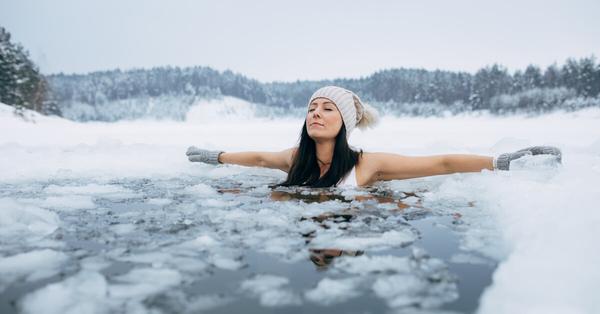Can you really catch cold and get sick?
The thermometer displays temperatures below 10°C and that's it, the same orders start all over again. "Put on your scarf, you'll catch a cold!" “, “But you don’t have a coat? ! You will get sick! So, once and for all, let's stop with this myth: catching a cold doesn't make you sick. At least not directly.
However, this does not mean that the cold is harmless and, directly or indirectly, it is a danger factor.
The myth: catching cold would make you sick
If there is a common myth in France and in many French-speaking countries, it is this one. And for good reason, the language conveys it: indeed, in the popular expression one can “take cold” or “catch cold”.
The most surprising thing is without a doubt the way in which we say “you can catch a cold” in English: “You can catch a cold”. Which actually translates to “you can catch a cold”. However, here it is the idea of illness and not cold that the expression designates.
In France in particular, a good number of people strongly believe that the cold makes you sick, which causes hilarity in many other countries. In fact, things are a bit more complicated.
Catching cold doesn't exist
Technically, the cold isn't what makes you sick. If in everyday language, we catch cold, the cooling of the body is not what causes winter ailments. The culprits are most of the time viruses, and even mostly rhinoviruses.
Then there are bacteria. The vast majority of winter illnesses that are placed behind the term "catching cold" are actually rhinitis or nasopharyngitis, even angina, laryngitis, tracheitis or bronchitis, sometimes flu syndrome, and more rarely whooping cough.

ENT diseases are common in winter – © Orawan Pattarawimonchai
The majority of these diseases disappear within a few days, except in certain cases where treatment will be necessary, specifically in the case of bacteria. Anyway, certainly the nose runs, we have a sore throat but the cold is not directly responsible. To say that we “catch cold” is therefore technically inaccurate.
The cold is not completely innocent
Human beings remain sensitive to the cold, and small inconveniences as well as more serious problems can appear. At first, the cold air weakens the body: it irritates the nasal mucous membranes and the bronchi.
This is how the cold favors the ground for infections of the ENT sphere(1).
Furthermore, cold does not kill viruses, at least not at a common temperature. An American study has shown that the flu virus even survives longer at a temperature of 5°C than at a temperature of 20°C, especially if the humidity is low(2). The outside temperature has a significant influence on the development of viruses(3). This is how the flu virus and some others create an envelope to protect itself from the cold. This envelope disappears once the virus enters a warmer organism, from which, researchers argue, epidemics are more common in winter.
Cold can be dangerous for humans
Don't underestimate the cold! Thus, the cold is bad for the heart and it is held responsible for an increase in the number of cardiovascular accidents in winter: +2% for -1°C(4).
Similarly, the risk of myocardial infarction increases by 2% as shown by a 2019 study(5). To quickly summarize, any physical activity requires an extra effort from the heart in winter.
You really have to protect yourself from the cold in winter – © ArtFamily
We are not even talking about the risks of hypothermia, carbon monoxide-related deaths, and the significant effects on already existing diseases such as asthma, hypertension and all respiratory conditions. It is estimated that 300,000 deaths are more or less directly linked to winter, which is much more than during heat waves today.
Protect yourself from the cold!
In theory, anyone can suffer the consequences of the cold, especially if they are not prepared for it. It will of course be a question of protecting yourself even more if you are subject to a chronic illness, if you work outside, or if the insulation of the house is not optimal.
Seniors and young children are also more exposed because their bodies adapt less well to temperature variations. The body does not know how to protect itself from the cold, it is necessary to put in place simple tips to help it.
The best thing is to dress appropriately, including indoors and you can, for example, combine layers of clothing to adapt more easily to temperature variations and insulate with air.
We think of the scarf for the good reason that the heat losses are rather through the head, and to maintain a zone of warmer air to breathe.
In general, avoid sudden changes in temperature which particularly weaken the body, and are once again increased by atmospheric pollution(6).
Nor is it a question of overheating the living rooms: the French Environment and Energy Management Agency (Ademe) sets the ideal temperature at 19°C, or even 20°C if you activate little, and a degree less preferably in the bedroom (18°C). Finally, do not forget to ventilate your interior even in winter.
Article updated and republished









